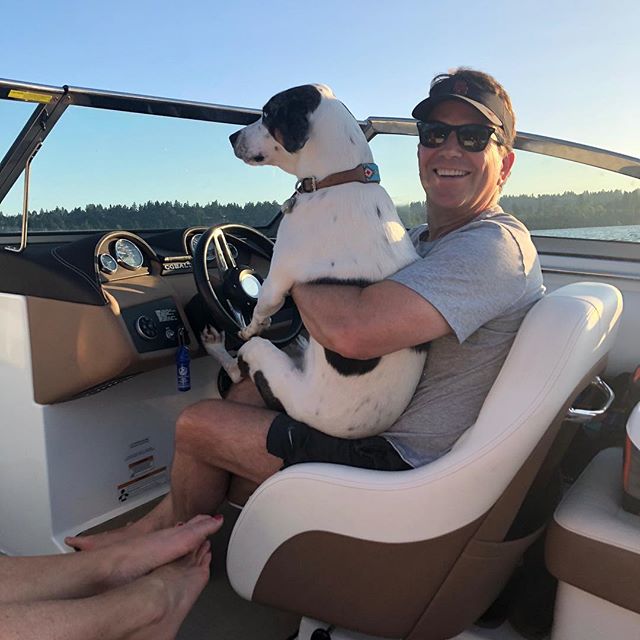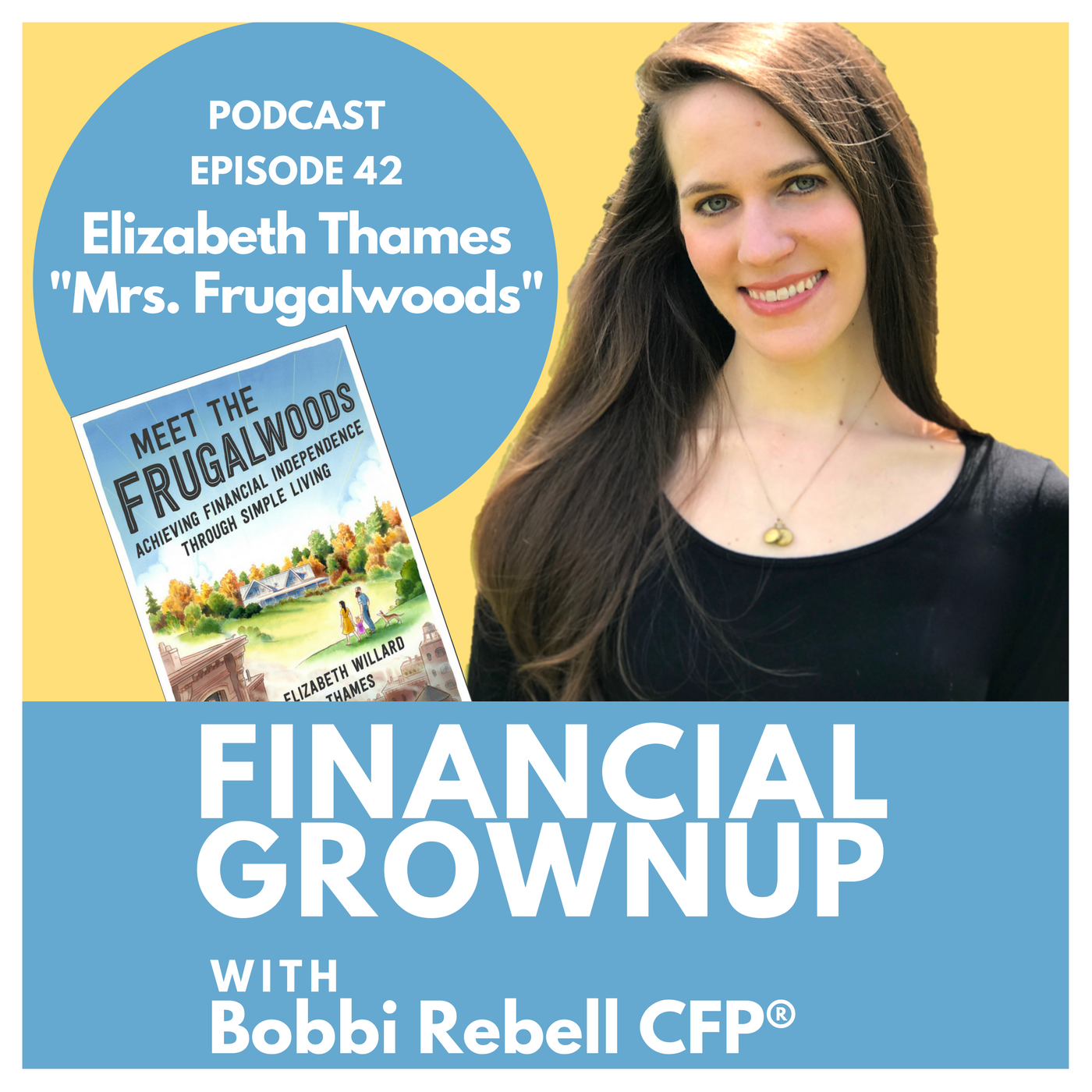Being a grownup is hard, but being a parent to emerging financial grownups may be even harder. Author John Christianson talks with Bobbi about the challenges of raising financial grownups - when it’s easier for the parents to support them.
In John's money story you will learn:
Yeah. Well, we've been successful at launching three kids, which we feel very proud of. But, along the way, we made tons of mistakes, and one of those was, we just had a difficult time saying no. Whether it was providing an allowance for the kids, and then they'd run through that allowance, and we'd somehow refill it. But, our story, really, is around providing a car for our kids. We needed the kids to get from our home, to their school, which was a private school about 20 minutes away, 25 minutes away, and they were all ... The kids were in sports.
So, at this point, we didn't have time to have the kids earn enough money to get a car. That would've been nice, but we didn't have that kind of luxury.
The car was really for you, so you, and your wife, and any caregivers in the mix, didn't have to be doing the driving.
Yeah. We were exhausted taking the kids around. We felt like a shuttle bus, taking them to all their events, and all their stuff. So, we needed that for them, and not only did we provide the gas, we provided the insurance and all that. So, it was kind of, yes, to take care of us, and in the process, at one particular day, I remember that we got the call from our son and he said, "Hey, dad. There's a red light on, on the dash." I said, "Well, what's the red light?" It's the engine that's ... That red thing on the engine is blinking, and the car won't start.
Come to find out, they'd run the car to the point where there was no oil. It had frozen up the engine. So, here I am, putting a new engine in the car, that was to help them kind of commute back and forth to school. It was just kind of this constant need for us to keep things moving, and we just didn't do a great job of saying, no, that there's consequences to that decision that you made not to look at the light, when you needed to refill oil in the car. It really came down to our own comfort as parents, and while we talked about, hey, that wasn't a really smart decision, and hey, that engine's going to cost a whole bunch of money to replace and to fix, and it would've great if we would've had more conversation about that before this point. Ultimately, at the end of the day, we put another engine in that car.
There was multiple cars after that, that led to us continuing just to feel like there was this flow of capital out the door, to kind of support what we need our kids to be able to do. So, yeah, I don't feel great about that. I feel like that's the one place in our life that I wish we would've said sooner, no, we're not going to do that. But, we didn't. In a lot of cases we just looked at what would be best for us.
What kind of discussions were you having at the time? Or, would you have liked to have had, I guess? It sounds like you weren't having discussions.
We were having discussions, but they weren't those. We were at least open about the fact, this is really costing mom and I a lot of money. I do remember saying that. This is expensive. At the same time, we were also, though, talking about what we valued as a family, and things that we were seeing in our kids. Which, they were committing to ... Our oldest son was committing to a sport that he loved. Our middle son was working, so we were trying to commit, help support him in that. So, we felt like we were talking about things like generosity, and talking about the opportunities that our kids were able to get that we weren't getting, or didn't get as kids, ourselves, my wife and I. So, we did have lots of conversations about those kinds of things.
So, I feel like there was some success in the types of things we talked about, in the experiences our kids got to have, that ultimately shaped who they became. For example, our daughter was going on mission trips, and helping building homes in Mexico. Our son got to go to Uganda, and do some service work there. Our oldest son, who was playing baseball, got to go to Puerto Rico, and serve some needy people in that area, on a baseball trip. Ultimately, at the end of the day, while I feel like we made some mistakes in providing too much, in some cases, and not having consequence for the cash outflows, I also think those things that the kids got to do, and what they were experiencing, shaped who they became today.
“I want to maximize return on life”
In John's money lesson you will learn:
I think it starts with opening up investment accounts for kids, and getting them ... And, that probably a seed capital from parents. That's money that you've got to put in there, and help them kind of get a sense of how that works, and help them understand what investing does, and the power of that, and the compounding of that, and how that can provide freedoms and choices in their life. It wasn't that we weren't talking about that. We kind of thought that the kids would be able to accumulate enough money, in savings, in allowance, that they would do that on their own, in our home. That just didn't occur.
So, I think that would be a place to start, would be seed some investment account for them. A small amount, or some amount that you can talk to them about. What companies are you interested in? Buy a few shares of a few stocks. I see successful parents talking about that.
The other thing I see parents do, that we did, and I have to say we did it differently than this, but is saying, "Here's what we value as a family. Here's what our family is about, and why we spend money on the things we spend money on." And, articulating that to kids. It's not so much about the dollar amount we're spending. It's almost irrelevant. It's, we're spending money on these things, because we care so much about them, and talking openly about that.
I think we gave our kids that gift of being able to ... Almost, like an entrepreneur, you can go do whatever you want to do, and they watched their mother and I go do that. All those things are messages. I think it's important to think about, if I ... Summing that up, I would say, what are the messages you're sending to your kids? Sometimes, that financial literacy is a great head knowledge, but is there a message in that you want to deliver to them? The message for us was, you can go be whoever you want to be, and we're going to give you the tools, and prepare you for that. Then, we're going to launch you, and we're going to let you go to figure out what that is.
"People that were gaining wealth weren’t necessarily any happier. In fact sometimes it was more complicated"
In John's everyday money tip you will learn:
Move towards something that is in the direction of risk. What I've found is, you don't have to get all the way there. It'd be great if you could, but just take one step towards that. Because, life will pass you by. I just see lots of people who have money, interestingly enough, and can do anything they want to do, don't do that. And, I see people that don't have money, the same. We're somehow wired to stay in whatever our comfort zone is, our cocoon. We're kind of wired to stay there, and it takes effort to take that step. I would just encourage people to take that step.
That's part of what I wrote in my book, which is, I want to maximize my return on life.
One thing that our listeners ask us a lot is, how do you know when you need to switch from the DIY approach to money management, maybe using a robo adviser, to really working with an investment pro? Then, how do we even begin to find one? That's something that you do cover in the book.
Yes, I do. Yeah, it's ... What I've found, is that you get to a point where you start to realize that, both, the assets are going up enough that you don't have the time, the inclination, or the knowledge, anymore, to do it. You're definitely smart enough. I don't think it's a function of how smart you are. It's just, I'm not giving it the attention it needs, even though I have my best intentions to rebalance my account, or to look at a new investment. Or, whatever that is, I just am not getting around to it.
I think there's a point there for everybody, where they have to be honest with themselves, and just say, look, I need some help. It isn't a sign of weakness. It's, I need help, and I'm going to put my time and energy where it's best suited, and maybe that's wealth creating, and I'm going to bring some people around me to help me manage and do some of the things that, either, I don't have the time for, or I just am not enjoying.
How do you identify that person? Especially, another theme you talk about in the book, is the issue of trust.
There's lots of people out there, but I do think it's something that I encourage people to take time. Take time interviewing a variety of people. Make sure there's a connection, both in character, but in capability, and in experience. Because, that trusted adviser role is critical.
There is a difference, I should say, another theme in your book that I just want to bring up quickly, between wealth creation versus money management. It's not the same thing.
It's not the same thing. People confuse that all the time, because they'll create wealth through a business, or a concentrated position in a company, or an IPO, or a whatever, and then all of a sudden they'll get a portfolio of investments, and go, "I want the same returns as that." That's just almost silliness.
It takes a little bit of conversation with people, to go, no, that's the point of money management. The point of money management is to grow that, and diversify it, and protect it, so it's there to fulfill the things you want in your life.
“We just didn’t do a great job of saying “no”, and that there is consequences to that decision that you made”
In My Take you will learn:
Financial grownup tip number one. Everyone matures financially, at different times, and it's usually okay. John had mixed feelings about supporting his kids, but the truth is, they had the right values. They were doing all the things that they should be. And, yes, they should've been more responsible with things like the car maintenance. But, they are all, now, fully functioning financial grownups. Sometimes, it just takes a little more time, and that's okay.
Financial grownup tip number two. There is proof that when parents give their children money, especially college graduates, to support them and give them a little boost as their starting out in life, these kids do go onto have greater professional success, according to research in a report by Anna Manzoni, Associate Professor of Sociology at North Carolina State University. In other words, giving kids a financial boost, again, assuming you can afford it, is in fact, a great way to put them on a path to success. So, while by no means should you put your own financial future, for example, your retirement, in jeopardy, if you can afford to help your kids while they are doing all the things that they're supposed to be doing, earning money, saving appropriately, and so on, it's a good thing. Life is hard enough.
John's kids have the values that he instilled in them, and when they needed to be financially independent, they were able to.
Episode Links:
Blinkist - The app I’m loving right now. Please use our link to support the show and get a free trial.
www.HighlandPrivate.com
www.JCChristianson.com
John’s book The Wealth Creator’s Playbook
John’s Podcast The Wealth Confidant
Follow John!
Instagram - @jcchristianson
Facebook - @jcchristianson
Twitter - @jcchristianson
LinkedIn
Some of the links in this post are affiliate links. This means if you click on the link and purchase the item, I will receive an affiliate commission at no extra cost to you. All opinions remain my own.









